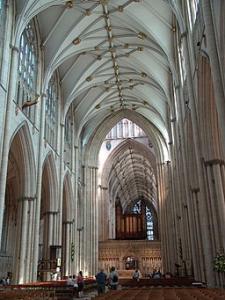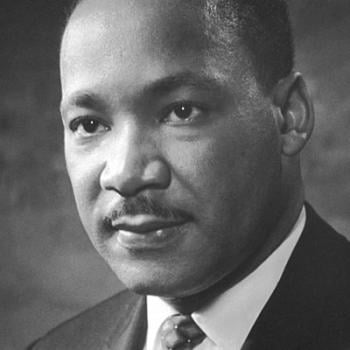
This past Sunday, many American Catholics celebrated the Ascension of the Lord into heaven. The proper time for it, of course, was actually last Thursday, but many dioceses have transferred it to the following Sunday.
This past weekend also marked the reopening of the small parish in Kentucky where I play the organ. The governor has said that churches can reopen, and the bishop has given permission also with a number of stringent guidelines. Our first Mass was actually last Wednesday. I’m only playing prelude and communion music at this point because, of course, singing is one of the most effective ways to spread the virus, so we have no vocal music other than chanting the Sanctus and Agnus Dei. But it’s been good to get back to church after two months. I’m well aware that reopening is controversial, and I’m frankly happy that it wasn’t my call. But I am not convinced it’s so obviously the wrong call that I should refuse to participate.
In Lent, when the shutdown started, it felt appropriate. It was a penitential season, and it felt like “the Lentiest Lent ever,” as someone commented on Facebook. But for those of us who live by the liturgical year, spending Easter in such a Lenten manner felt wrong.
Of course it isn’t wrong. Charity and respect for the common good demand it. But even beyond that, having Lent invade Easter in this way has reminded us forcefully of the “not yet” that lurks under even our most joyful celebrations in this fallen world. It reminds us that we have not yet arrived at the goal of our pilgrimage. Of the four classic senses of the Exodus in the Christian tradition, the fourth, anagogical sense–the passing over from this life to the fullness of the Kingdom–remains before us.
I’m glad, nonetheless, that I’ve been able to celebrate the end of the Easter season in community–to hear the words of the Mass, to go to confession, and to receive the Eucharist. Our joy in this is all the more intense for being subdued. We have always known that we see dimly in this life and not yet face to face. The masks we wear remind us of this more forcefully than usual. What binds us together, in this mortal life, is not clear vision but charity. And charity, under present circumstances, commands us to wear masks. It’s a paradox, to be sure, to distance ourselves out of charity and to hide our faces from one another in order to show our love. But the Christian faith is full of these paradoxes.
The Ascension, which we have just celebrated, is paradoxical in much the same way. Someone posted a joke on Facebook that the Ascension is when Jesus started “working from home.” The basic imagery is of disappearance, absence, return to some “other realm” beyond the sky. In York Minster there’s a ceiling boss showing the soles of Jesus’ feet surrounded by the heads of Mary and the apostles. That’s one way to think of it–Jesus is no longer with us face to face, and all we see of him are his disappearing feet.
But that’s not really what the Ascension is about. In the Gospel of John Jesus comforts the disciples by telling them that it is better for him to go away so he can send the Spirit to them. The letter to the Ephesians tells us that Jesus ascends into heaven “in order to fill all things.” He is with us more fully because he is no longer with us “under his natural dimensions.” Through the hypostatic union, the human Jesus is also the divine Logos, present from eternity and speaking to us in very atom of this world which came into being in him and through him. Yet, for Catholics, this is not a purely spiritual presence. In the Eucharist we eat and drink the true, glorified body and blood of the Lord. In the reserved Sacrament in the tabernacle, or the Host elevated in Mass and Benediction, we see Christ present with us in a material way, but not a way evident to the senses. One might almost say that He wears a mask.
It’s not so simple as “spirit matters and body doesn’t.” But I also don’t think it’s so simple as “let’s get rid of all that Platonic nonsense and celebrate our embodied Faith.” Rather, it’s an example of what Owen Barfield called “polarity.” (Warning: if you go on reading my blog you will hear about polarity a lot, and about Barfield too.) Each of the poles always leads us back to the other in a deeper way. We celebrate that God became flesh, a real body nailed to a real Cross. We also celebrate that this Incarnate God ascended into heaven and is present in every particle of creation. And yet we further celebrate that He is present “in his natural dimensions” in heaven and most fully present to us, here and now, in the form of physical bread and wine. Yet by the time we have finished explaining what this Real Presence means, most modern people’s heads are spinning and they aren’t quite sure what we are saying if it isn’t just fancy language for ritual cannibalism.
The one thing we can be sure of is that we must somehow hold on to both poles. In times of deprivation such as we have passed through, and many are still passing through, we console ourselves with spiritual communion while never letting ourselves think that this is all that really matters. We look forward longingly to a return to fully embodied worship and fully embodied community. But when we do return to it, we must remember those who cannot. We remember those who are present with us invisibly as members of the Communion of Saints. We become acutely aware of the defects and dangers and limitations of our physical community as a local expression of the Body of Christ.
To use the hoary theological cliche, we hold together the “already” and the “not yet.” Or in the words of Charles Wesley’s great Ascension hymn:
Him tho’ highest Heaven receives,
Still he loves the Earth he leaves;
Tho’ returning to his Throne,
Still he calls Mankind his own.See! He lifts his Hands above!See! He shews the Prints of Love!Hark! His gracious Lips bestowBlessings on his Church below!. . .Master, (will we ever say)Taken from our Head To-day;See thy faithful Servants, see!Ever gazing up to Thee.Grant, tho’ parted from our Sight,High above yon azure Height,Grant our Hearts may thither rise,Following Thee beyond the Skies.Ever upward let us move,Wafted on the Wings of Love,Looking when our LORD shall come,Longing, gasping after Home.
There we shall with Thee remain,Partners of thy endless Reign,There thy Face unclouded see,Find our Heav’n of Heav’ns in Thee!












